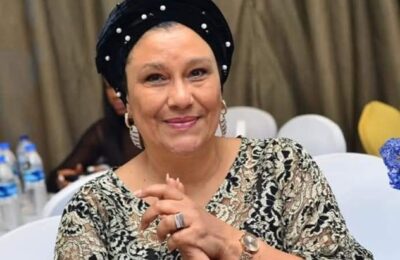Idah, Kogi State — In the very soil where the drumbeats of Igala ancestry once summoned kings, warriors, and visionaries, the recently concluded Igala Stakeholders Summit unfolded with the weight of expectation but collapsed under the ridicule of its own Sons and Daughters. What should have been a convocation of destiny has been derided as a hollow carnival, a pageant without purpose, a stage for men without mandate. The air in Idah still carries the biting metaphors of disillusioned voices: a congress of political harlots trading loyalty like merchandise, a mother hen brooding over watering eggs without a cock to give them life, a conclave of hooligans rehearsing betrayal before the theatre of 2027. These phrases, harsh yet haunting, now trail the gathering more powerfully than the speeches delivered beneath its canopies.
The viral reactions speak not only of anger but of a deep sense of futility. Unlike the previous summits that carried the aura of legitimacy through the presence of Igala’s finest statesmen, women of substance, scholars, and revered sons of the land, this assembly lacked gravitas. It bore the air of a hamlet’s meeting, as one elder lamented, stripped of the commanding presence that dignifies consensus and stripped of the moral authority that makes words reverbrates beyond the moment. African royal traditions have long warned against the futility of such pretenses. The Ashanti say, “When the stool is empty, the people’s voice becomes hollow.” Among the Zulu it is said, “A kraal without its bull is a playground for stray dogs.” And in Igala idiom, the masquerade that dares to dance without drummers is destined to stumble before the crowd. So it was in Idah — a dance of ambition without the rhythm of sincerity.
The bitterness of the reactions cannot be dismissed as mere cynicism; they reveal a nation wounded by the repeated betrayal of its custodians. Igala, once the indisputable powerhouse of Kogi politics, has watched its crown dim through disunity, greed, and opportunism. The late Attah Igala, Dr. Aliyu Obaje, warned his chiefs with prophetic clarity that “the throne is not for self but for service, not for division but for direction.” Yet in the present climate, service has been eclipsed by selfishness, direction drowned by discord, and unity bartered in the open market of political expediency. The summit that should have been a covenant of destiny has become a comedy of errors, mocked in the courtyards of the people and trailed by proverbs sharper than daggers.
Royal voices across the continent remind us that the folly of false councils is not new. The Ooni of Ife once cautioned that “when the elders sit without truth, the young will scatter without fear.” King Sobhuza II of Swaziland declared with fire that “a council that forgets the people becomes a fire that burns its own hut.” These warnings return with painful relevance to Idah. A gathering without the true custodians of Igala destiny is not a summit but a shadow, not a covenant but a counterfeit. To the ordinary citizens who watched from afar, the spectacle was nothing more than an over-watered egg — an investment of time, money, and rhetoric in a process that will never hatch into life.
The metaphors flowing from the people’s lips after hearing that a stakholder summit hold yesterday puncture the pretenses more effectively than any academic analysis could. To call the summit a mother hen sitting on infertile eggs is to expose it as labour without legacy, effort without offspring, energy without outcome. To brand its participants as political harlots is to strip away their masks and reveal a marketplace where loyalty is sold to the highest bidder. To describe it as a gathering of hooligans rehearsing betrayal is to name the unspoken truth that many fear: that when 2027 arrives, these same men will barter away Igala destiny for personal gain. The imagery is violent because the disappointment is deep, and the ridicule bites because the betrayal is real.
The tragedy lies not only in the present ridicule but in the weight of history mocked. This is Idah, the ancient citadel of Igala civilization, where the Attah’s throne once symbolized power that stretched across Nigeria’s middle belt. To desecrate such ground with hollow speeches is to forget the sacredness of the land itself. In African thought, geography is never neutral; the land carries memory. To assemble in Idah without true unity is to mock the very ancestors whose sacrifices carved the space. It is to beat a drum out of rhythm before spirits that cannot be deceived. A proverb from Mali rings with chilling relevance: “When the drum beats without rhythm, the dancers scatter in confusion.” Idah’s summit was such a drum, and the Igala people have scattered in mocking laughter rather than united in solemn resolve.
Yet beyond the mockery lies a sobering danger. Summits without substance breed cynicism, and cynicism corrodes the possibility of genuine revival. Igala cannot afford to become a people who laugh at their own pain while their destiny slips away. The eagle does not lose its crown in flight; it loses it when it forgets the sky. For Igala, the crown of political dominance was not stolen by enemies; it was lost through the forgetfulness of its own custodians. The reactions trailing the summit are not merely insults; they are warnings from the grassroots that time is running out, that unity must move from rhetoric to reality, that leadership must graduate from pageantry to sacrifice.
With 2027 looming, the question is whether the Igala elite will learn from the ridicule or persist in their theater of futility. Will they continue to gather in hamlet-sized assemblies masquerading as national councils, or will they rediscover the courage to convene with sincerity, with love for the land, with the true inclusion of its greatest sons and daughters? The words of an elder resound as both mockery and prophecy: “It was nothing but a hamlet’s meeting.” In those words lies both the insult of the present and the challenge of the future — to rise above the hamlet and reclaim the nation.
The world has now seen the viral reactions, each metaphor sharper than the next, each proverb heavier than speeches delivered at the summit itself. History will not remember the resolutions of the Idah gathering; it will remember the ridicule. It will not remember the titles of those who sat beneath the canopies; it will remember the phrases of the people: political harlots, watering eggs, hooligans rehearsing betrayal. And yet, embedded within that ridicule lies a chance — the chance to hear, to repent, to reunite, to prove that Igala destiny is not condemned to mockery but can still rise in majesty.
For in African royal tradition, a false gathering may be mocked, but the true gathering, once convened, carries the power to change history. The stool may be empty today, the kraal without its bull, the masquerade without its drummers, but when the rightful voices return, when unity is genuine and love for the land outweighs ambition, then Idah will no longer host the theatre of ridicule but the council of renewal. Until then, the summit remains a cautionary tale — a mother hen brooding over eggs that will never hatch, mocked in the proverbs of its own people, remembered less for what it promised than for the futility it revealed.
– Inah Boniface Ocholi writes from Ayah – Igalamela/Odolu LGA, Kogi state.
08152094428 (SMS Only)



